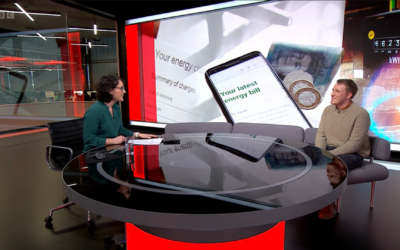 Bevan Foundation
Bevan Foundation 
This week, members of the House of Commons Welsh Grand Committee debated the impact of the UK Government’s legislative programme on Wales.
The Welsh Grand Committee is a curious, pre-devolution attempt to carve space in Westminster to consider purely Welsh matters. All 40 Welsh MPs are members, and up to five other MPs can join the committee – handy if your frontbench Wales spokesperson doesn’t represent a Welsh constituency!
But the Grand Committee isn’t the only pre-devolution curiosity lurking around Welsh and Westminster politics. This week’s Parliamentary debate on the Queen’s Speech highlighted the confusion that often exists – particularly on constitutional reform – within Welsh Labour’s policy-making machine.
One of the items Welsh MPs debated was the UK Government’s Draft Wales Bill. The Bill is intended to make some changes to the Assembly’s electoral arrangements and is expected to be the vehicle for many of the Silk’s Commission’s recommendations.
While there’s broad agreement on some aspects of the Bill, like limiting people from ‘double jobbing’ as MPs and AMs at the same time, other measures like removing the ban on dual candidacy, are likely to run into controversy.
I won’t debate now the “pros” and “cons” of the ban on dual candidacy – other than to say the Electoral Reform Society opposes the current ban and cites Ukraine as the only other country in the world which imposes such a restriction.
The interesting thing here is that the debate on dual candidacy reveals a difference within Welsh Labour. It’s a difference which confuses external observers of Labour politics, but perhaps more importantly, it’s a difference that frustrates rank and file Labour party members in Wales.
Here’s the difference: Owen Smith MP, Labour’s Shadow Secretary of State for Wales, has said that a future UK Labour Government would re-impose a ban on dual candidacy if the Coalition Government moves ahead and scraps the ban in this Parliament. First Minister Carwyn Jones, however, has said that Parliament should not legislate in this area. The First Minister wants the electoral arrangements of the National Assembly devolved, on the grounds that it should be up to Welsh AMs to decide whether such a ban remains.
This isn’t an isolated case. Smith’s predecessor, Peter Hain, raised the idea of electing all AMs by “First Past The Post” back in 2011. The First Minister made it known that the official policy was still to back the status-quo of 40 constituency AMs elected by FPTP and 20 regional AMs elected using the proportional “D’Hondt system. Jones also made his view known that any decision on reforming how we elect our AMs should be taken by AMs themselves with a mandate from the people of Wales.
And earlier this year, the Welsh Government’s submission to the Silk Commission on devolution floated the prospect of devolving policing to the National Assembly; an idea which was rejected by the Labour frontbench in the House of Commons and led, so we are told, to the First Minister receiving a scolding from the Welsh Labour MPs for deciding “ad-hoc” Labour policy without first consulting.
There was no separate Welsh Labour submission to Silk, and no presentation of evidence from the UK Labour party either. The Welsh Government’s position is viewed by some as the de facto Labour position, while others carefully study press clippings and Hansard to piece together what the position of Labour MPs might be.
Pro-devolution parties in Westminster are rightly nervous about Labour, and understandably demand greater clarity from the party. But Labour Party members in Wales also deserve a right to debate and contribute to the party’s position and policy on devolution.
Just a few decades ago, critics bemoaned the fact that Welsh Labour contained the debate on devolution within its own four walls. In 1955, Cliff Prothero, secretary of the then Welsh Council of Labour, refused to debate reform with those outside of his party, and said “any kind of devolution required in Wales can be discussed within the confines of the Labour movement”. It’s almost ironic that the debate on devolution is now conducted without the involvement of Labour party members, rather than being confined to within the Labour movement.
Welsh Labour urgently needs to generate an internal debate on where devolution is heading. What does a sustainable devolution settlement for Wales look like from a Labour perspective? Having had that debate, the party can then resolve a single position and unite around a shared vision of constitutional reform.
Steve Brooks is Director of the Electoral Reform Society Wales, a board member of Cymru Yfory and the Bevan Foundation. He writes in a personal capacity.


